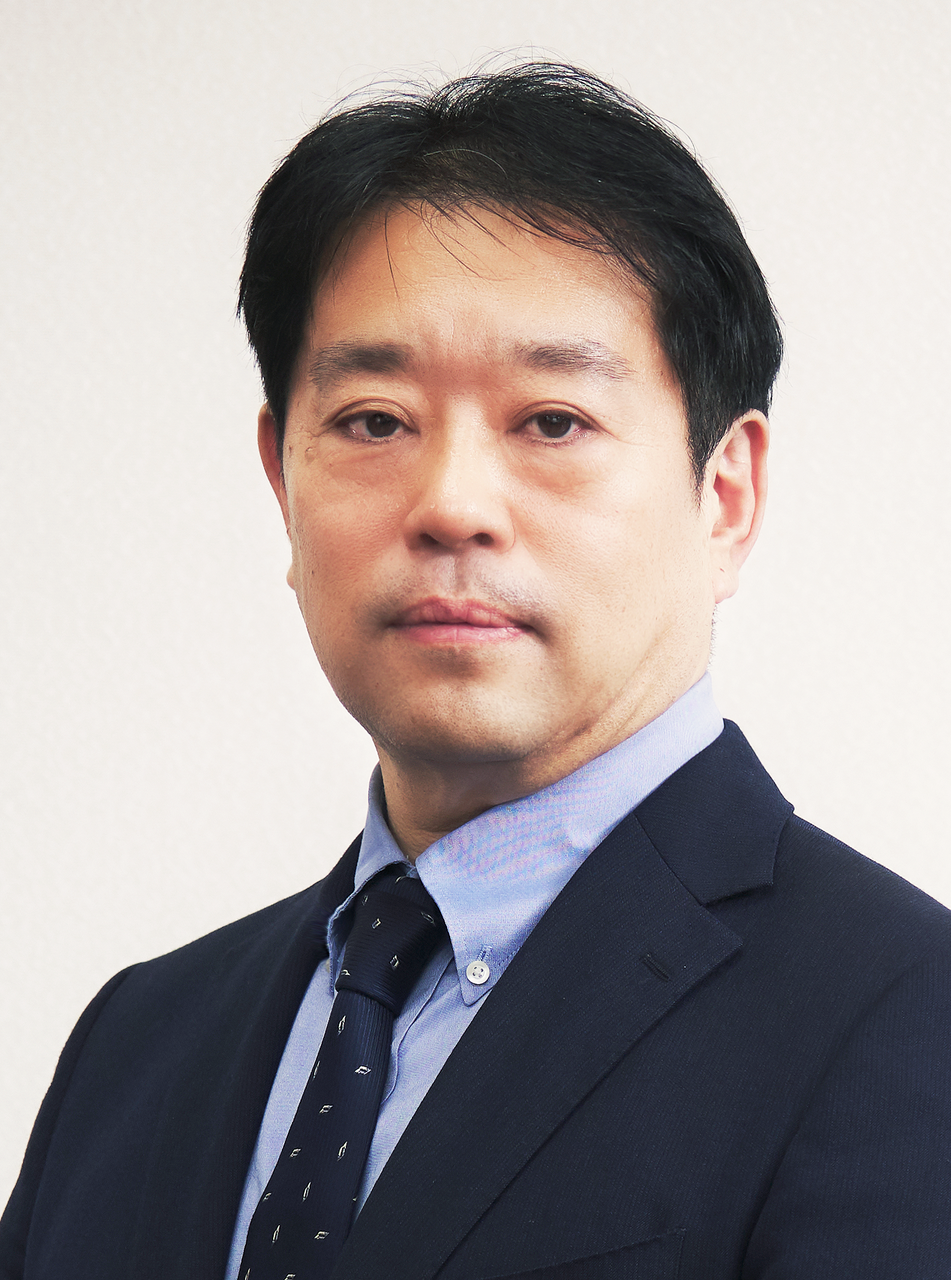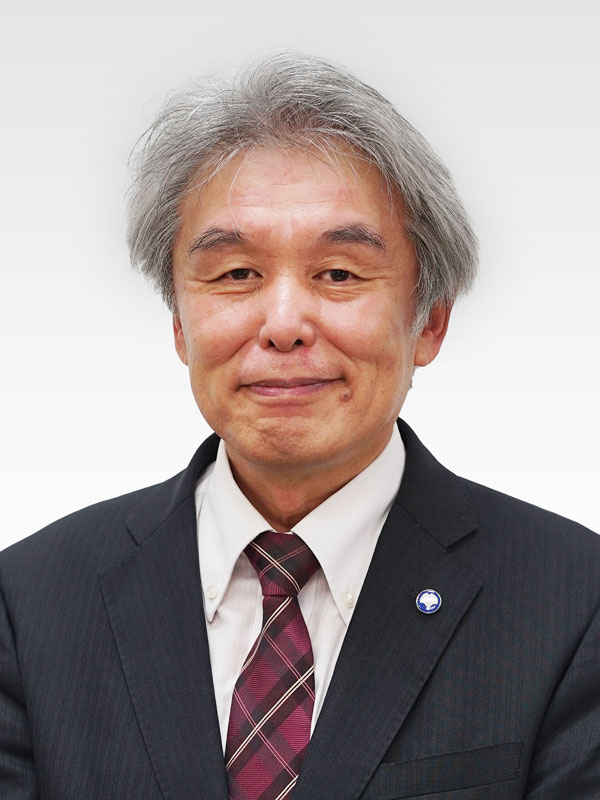Integrating Generative AI into Japanese Higher Education: Policy Responses, Pedagogical Practices, and Future Directions
Introduction
Japan, known for its long-standing commitment to technological innovation, is now navigating this transformation in its higher education sector. The rise of Generative AI presents both exciting opportunities and pressing challenges for Japanese universities: How can they embrace new technologies to enhance learning, while safeguarding academic integrity and educational quality? How can they prepare students not just to use AI tools, but to think critically about them?
This article reviews the latest developments in national policies, university guidelines, and teaching practices, highlighting The University of Osaka as a case study of its comprehensive approach to AI in education. Drawing on interviews with AI research leaders and university leaders, it also outlines the directions universities are likely to take as they move toward deeper integration of AI.
Government Policies: A Human-Centered AI Strategy
In November 2019, Japan released its AI Strategy 2019, which laid out three core principles: human dignity, diversity, and sustainability[1]. The strategy emphasised that AI development must be human-centered, uphold human dignity, and foster broad, sustainable applications of AI across sectors. A critical focus of the strategy is education reform, aimed at cultivating professionals through the establishment of dual-degree programmes that integrate AI and domain-specific studies, and encouraging higher education institutions to incorporate general education courses in data science and AI into their major fields of study.
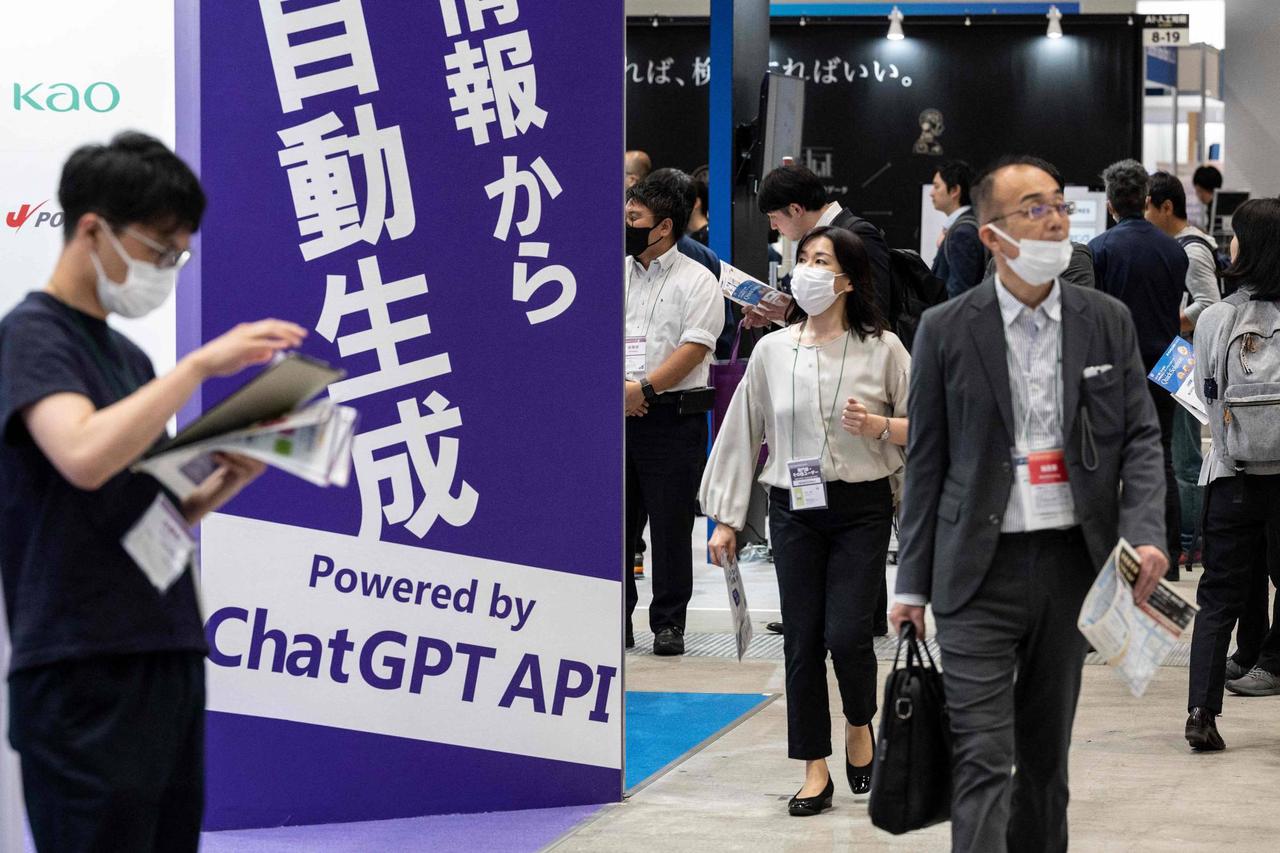
In 2021, Japan introduced a certification system for education in mathematics, data science, and AI, led by the Ministry of Education, Culture, Sports, Science and Technology (MEXT)[2]. This initiative aims to accredit educational programmes that meet established standards and ensure high teaching quality, and to further promote composite human resources with professional knowledge and AI capabilities.
As AI technology advanced further, new challenges emerged. In July 2023, MEXT issued official guidance Policies for Addressing the Use of Generative AI in Universities and Technical Colleges, which aims to help institutions appropriately incorporate Generative AI to enhance education while managing associated risks[3]. The document is concerned about technology-induced issues such as academic misconduct, information security, and copyright infringement, and recommends that institutions establish and update tailored usage guidelines of technology based on the institutional needs. It also stresses the importance of transparency in student use of AI tools, encouraging diversified assessment methods to prevent overreliance on AI-generated content and the significance of content validation and the cultivation of critical thinking.
In parallel with these education-focused initiatives, the Japanese government has since 2023, been actively promoting the development of homegrown Generative AI models. One notable initiative is led by the National Institute of Informatics (NII), which has identified a critical issue: conventional English-centric models tend to lack sufficient understanding of the Japanese language and cultural context. To address this, NII has placed strong emphasis on developing "sovereign AI" trained with extensive Japanese corpora. The result of this effort is the LLM-JP model, designed with the ability to grasp Japan's history, literature, and cultural heritage[4]. In the field of higher education, its application for learning support is also highly anticipated.

Institutional Generative AI Usage Guidelines
Since 2023, numerous Japanese universities have introduced policies governing the use of Generative AI. The authors conducted a survey of the 37 universities involved in Japan's Top Global University Project (a national initiative launched by MEXT to enhance the global competitiveness of selected universities) and found that 27 of them had issued guidelines on the use of Generative AI for students and faculty. We subsequently carried out a detailed analysis of the content of these guidelines to examine their scope, focus, and underlying principles[5].
In terms of benefits, 44% of universities cite AI's ability to enhance efficiency and automate tasks, 22% highlight its potential in content creation and editing, 19% emphasise personalised learning support, and 11% discuss its role in fostering creativity and innovation (Figure 1). However, these descriptions are often general, with limited detailed application scenarios.
In contrast, concerns regarding AI risks are more comprehensively addressed: 78% of universities highlight data security issues, 67% raise concerns about copyright, 63% warn against the spread of misinformation, and 41% specifically address academic plagiarism (Figure 2). However, other risks—such as environment risks, AI divide, and control of speech and thought—remain largely unaddressed.
For instance, in response to these challenges, The University of Tokyo recommends that faculty evaluate AI tools prior to classroom use, while Tohoku University offers strategies to reduce inappropriate student use of AI in assignments. Sophia University and Hiroshima University have included AI education in their faculty development programmes to enhance AI literacy among teaching staff.
The survey also reveals that 63% of universities allow instructors to determine the scope and manner of AI use in their classrooms, reflecting an autonomous policy approach. Additionally, 52% regularly revise their policies in response to technological advancements, promoting adaptive course design and pedagogical innovation.
Figure 1. Percentage of Universities that Address Usefulness in Guidelines

Figure 2. Percentage of Universities that Address Risk in Guidelines
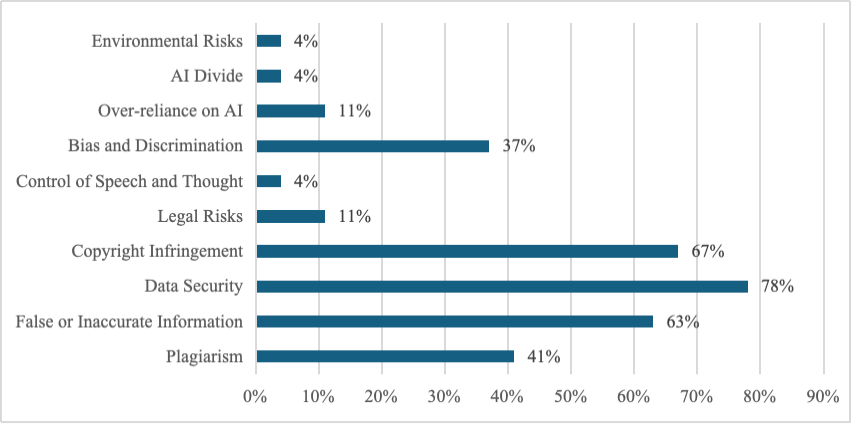
Case Study: The University of Osaka's Comprehensive Approach to AI in Education
As one of Japan's leading comprehensive research universities, The University of Osaka (UOsaka) issued Japanese- and English-language guidelines on the use of generative AI for students as early as April 2023[6]. The guidelines recognises the role of generative AI in supporting pre-research for learning, but suggests thatstudents must use it responsibly—remaining mindful of risks such as misinformation, data leaks, and copyright issues—while valuing independent thinking, dialogue, and the overall learning process as the true essence of higher education. Furthermore, UOsaka has adopted a multi-layered, systematic approach to integrating generative AI across undergraduate and graduate education, faculty development, and institutional innovation.
Undergraduate Education: Building Foundational Literacy and Interdisciplinary Skills
In alignment with MEXT's AI education initiative, UOsaka structures its undergraduate AI education into two tiers: foundational AI literacy for all students and applied courses tailored to individual disciplines. All undergraduates, regardless of major, engage in hands-on analysis of social data to develop basic competencies in mathematics, data science, and AI. The curriculum combines theoretical knowledge with practical applications, often delivered through industry-collaborative project-based learning, to strengthen students' analytical and problem-solving skills.
Graduate Education: Deepening AI Integration through Interdisciplinary Learning
At the graduate level, Institute for Transdisciplinary Graduate Degree Programmes offers interdisciplinary programmes such as "Graduate Minor Programme" and "Graduate Programme for Advanced Interdisciplinary Studies" that incorporate AI into diverse academic fields[7]. The Digital Humanities Programme targets students in the humanities and social sciences, equipping them with the ability to utilise AI tools in their research. Another initiative, the "Programme for Developing Security Human Resources for Secure Data Utilisation" aims to cultivate high-level professionals equipped to address challenges related to data ethics and privacy. These programmes balance technical expertise with societal application, reinforcing AI literacy among advanced learners.
Faculty Development: Enhancing AI Teaching Competencies
To support faculty, UOsaka's Center for Education in Liberal Arts and Sciences offers Generative AI Teaching Guide website, which outlines core AI principles, ethical considerations, and practical teaching strategies. As part of its faculty development initiative, the center offers both "introductory" and "advanced" workshops to enhance pedagogical integration of AI. Additionally, educational videos aimed at incoming students are disseminated via platforms like YouTube to foster early engagement and comprehension of AI concepts.
D3 Center: Building a Data-Driven Institutional Ecosystem
In October 2024, UOsaka established the D3 Center—focusing on Digital Design, Datability, and Decision Intelligence—to drive institutional transformation through data science. "Digital Design" involves structuring information for analysis, "Datability" emphasises extracting actionable insights from large datasets, and "Decision Intelligence" supports data-informed strategic decision-making. The center builds an integrated framework from data generation to application, accelerating the university's transition into a data-driven organisation and enhancing the role of AI in research and administration.
ELSI Center: Addressing the Ethical, Legal, and Social Dimensions of AI
In response to the ethical and societal challenges posed by AI, Ethical, Legal, and Social Issues (ELSI) Center published two research reports on the implications of Generative AI in March 2023 and August 2024. The center aims to identify and address key concerns such as ethical dilemmas, legal accountability, and social equity, promoting a responsible use of technology framework. By integrating expertise from law, ethics, and sociology, the center offers theoretical and policy support for the sustainable development of AI in education and research.
Through these initiatives, UOsaka has developed a structured AI education framework that includes foundational courses, graduate-level training, faculty support, institutional adjustments, and attention to ethical considerations. This approach reflects efforts to build a data-informed, technologically integrated, and ethically aware academic environment.
Figure 3. AI Education Ecosystem at The University of Osaka (visuals illustrated by the authors)
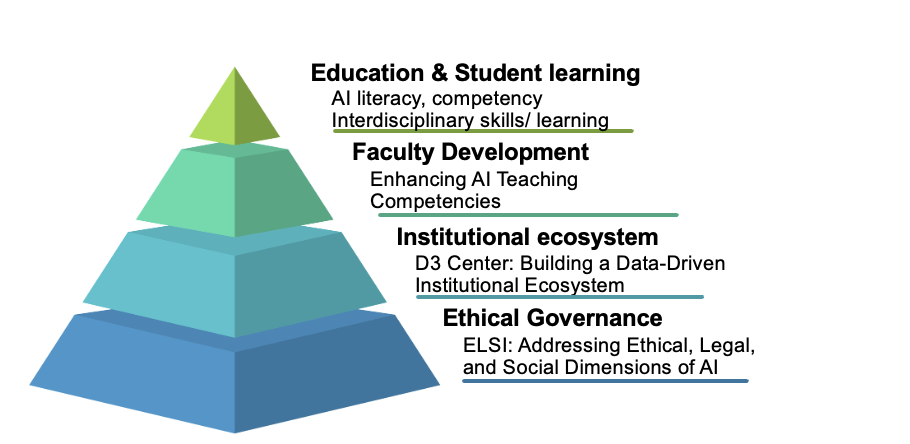
Future Directions: Insights from Japanese Academic Leaders
| Currently, AI experts in Japan are actively working to promote the adoption and utilisation of generative AI. In February 2025, the Science Council of Japan released a proposal titled Toward the Realisation of a Society that Accepts and Utilises Generative AI[8]. Prof. Sadao Kurohashi, Secretary of the Committee on Informatics at the Science Council of Japan and Director-General of the National Institute of Informatics, emphasised the need for active discussion and utilisation of generative AI across a wide range of fields, including education, healthcare, and industry. In particular, he stressed the importance of dialogue and collaboration between AI and other disciplines, positioning this as essential for society as a whole to advance efforts that take into account the broader impact of generative AI. |
|
| At The University of Osaka, Senior Executive Vice President, Prof. Toshihiro Tanaka further pointed out that, in an AI-driven society, respect for humanity must serve as the foundation for shaping the future. Building on advances in science and technology, universities should place humanistic values at the center of education and nurture individuals who can move beyond dependence on AI to stay one step ahead. To this end, it is essential to foster a deep understanding of humanity, including ethics, through education that transcends disciplinary boundaries, and to cultivate the ability to create new value beyond AI. Providing such an environment, is the very mission of universities. |
|
This shared vision highlights Japan's balanced approach toward Generative AI, where technological advancement is pursued in tandem with human-centered values. By emphasising interdisciplinary collaboration, ethical awareness, and the cultivation of creativity beyond machine capabilities, Japanese university leaders underscore that the future of AI should not only drive efficiency and innovation but also reinforce social trust and human dignity. This perspective positions universities and research institutions as critical bridges between technology and society, ensuring that Generative AI contributes to sustainable and inclusive progress.
References
[1]Integrated Innovation Strategy Promotion Council Decision, "AI Strategy 2019 AI for Everyone: People, Industries, Regions and Governments (tentative translation)," Jun. 2019. Available: https://www8.cao.go.jp/cstp/ai/aistratagy2019en.pdf
[2]文部科学省, “数理・データサイエンス・AI教育プログラム認定制度:文部科学省,” 文部科学省ホームページ, 2024. https://www.mext.go.jp/a_menu/koutou/suuri_datascience_ai/00001.htm#01 (accessed Aug. 26, 2025).
[3]Q. Xie, M. Li, and A. Enkhtur, "Exploring Generative AI Policies in Higher Education: A Comparative Perspective from China, Japan, Mongolia, and the USA," arXiv (Cornell University), Jul. 2024, doi: https://doi.org/10.48550/arxiv.2407.08986.
[4]LLM-jp, "Home|LLM-jp," Nii.ac.jp, Aug. 25, 2025. https://llm-jp.nii.ac.jp/en/ (accessed Aug. 26, 2025).
[5]M. Li et al., "A Framework for Developing University Policies on Generative AI Governance: A Cross-national Comparative Study," arXiv.org, 2025. https://arxiv.org/abs/2504.02636
[6]N. Shojiro, "Notice on Using Generative AI," The University of Osaka, 2023. https://www.osaka-u.ac.jp/en/news/topics/2023/04/17001 (accessed Aug. 26, 2025).
[7]The University of Osaka, "Institute for Transdisciplinary Graduate Degree Programs, The University of Osaka," Institute for Transdisciplinary Graduate Degree Programs, 2023. https://itgp.osaka-u.ac.jp/en/ (accessed Aug. 26, 2025).
[8]日本学術会議, “提言:生成AIを受容・活用する社会の実現に向けて,” Feb. 2025. Accessed: Aug. 26, 2025. [Online]. Available: https://www.scj.go.jp/ja/info/kohyo/pdf/kohyo-26-t381.pdf
-
Ariunaa Enkhtur (PhD)AthorAriunaa Enkhtur (PhD) is an Associate Professor at the Institute for International Initiatives, The University of Osaka, Japan. Her research explores the internationalisation of higher education from multiple perspectives, including teaching and learning, academic mobility, and sustainable development. More recently, her work has examined the impact of Generative AI and digital transformations on higher education, viewed from the intersection of policy, practice, and academic research.
-
Ming Li (PhD)AthorMing Li (PhD) is a Guest Associate Professor at the Institute for Transdisciplinary Graduate Degree Programs, The University of Osaka, Japan. In recent years, her work has focused on the integration of Generative AI into higher education, with particular attention to policies at both governmental and university levels, as well as students' understanding and acceptance of the technology. Her broader research interests include interdisciplinary education, the internationalisation of education, student mobility, and global talent mobility.
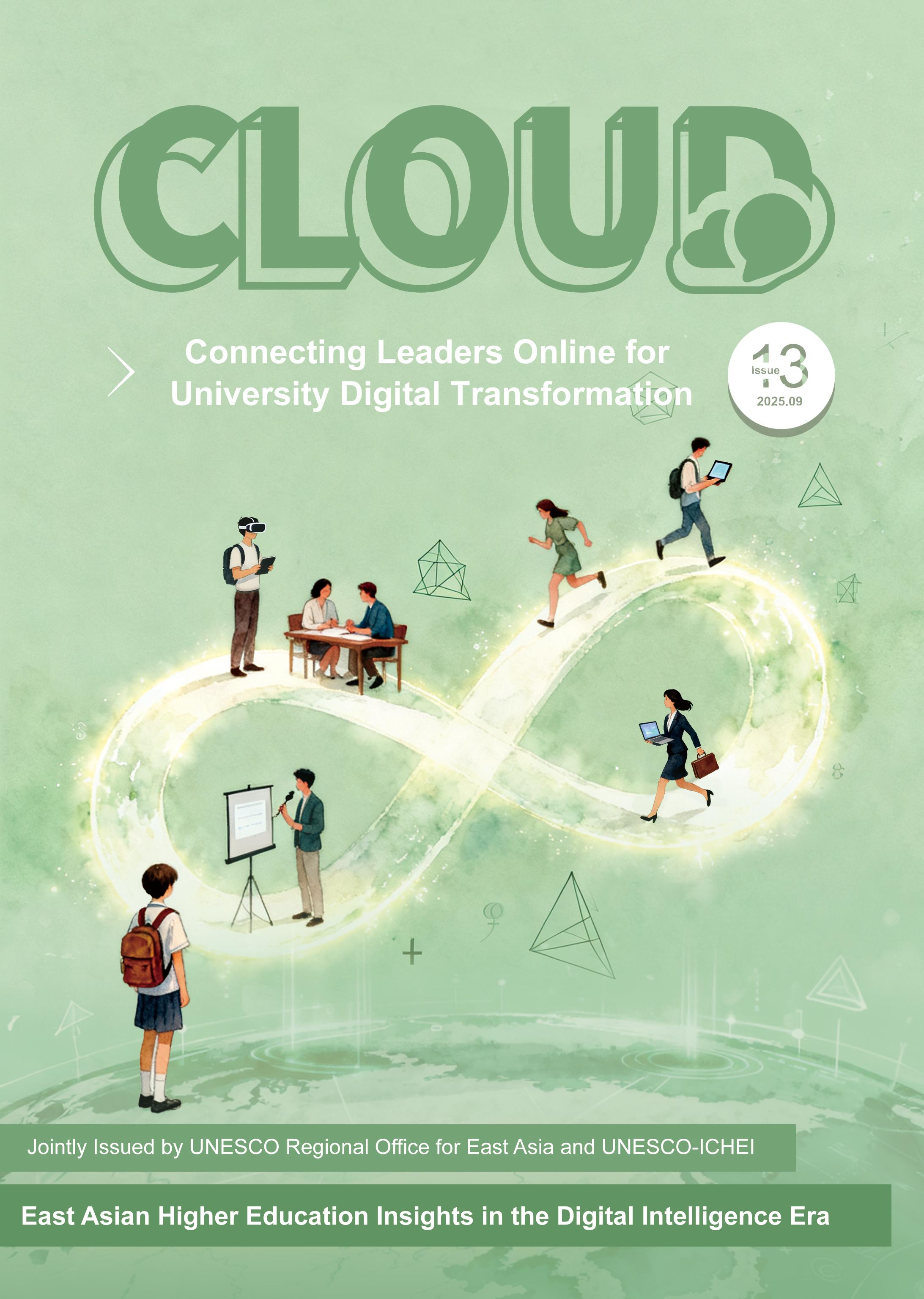
- Tohoku University: How to Address an Ageing Society through “AI + Healthcare”
- Industry Demand-Driven: South Korea's AI Talent Development Policies and Practices
- Sungkyunkwan University: Shaping Talent for the AI Semiconductor Era
- Riding the Wave: The Diverse “AI+” Disciplinary Ecosystem in Chinese Higher Education
- AI in Higher Education: Lessons from the EU
- Dialogue with CLOUD: Interview with the IIOE Mongolia National Centre
- Integrating Generative AI into Japanese Higher Education: Policy Responses, Pedagogical Practices, and Future Directions
- UNESCO Regional Office for East Asia: Seeking an Inclusive Future amid Opportunities and Challenges


